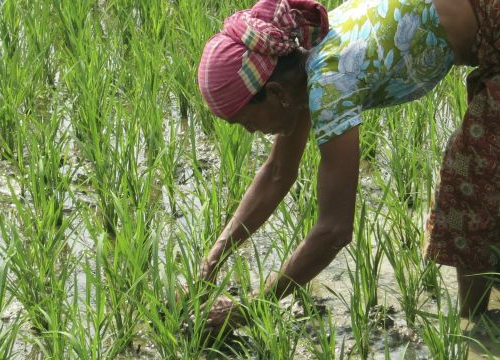Two Major Research Projects on the Right to Food Renewed for Three Years


ICRC
27 November 2017
Our two research projects on the right to food, funded by the Research for Development Programme (r4d) of the Swiss National Science Foundation (SNSF) and the Swiss Agency for Development and Cooperation, have been renewed for three years.
‘This renewal is an important acknowledgement of the high quality of the research and partnerships developed during the initial phase of each project’ underlines Dr Christophe Golay, Strategic Adviser on Economic, Social and Cultural Rights at the Geneva Academy. ‘It will also allow us to conduct more in-depth and detailed longitudinal research to show strong results and outcomes in 2020’ he adds.
Land Commercialization, Gendered Agrarian Transformation and the Right to Food (DEMETER)
This first research project examines the relationship between the right to food and gender equality in ensuring food security in the context of land commercialization in two case-study countries, Cambodia and Ghana. The upcoming three years will be used to validate the results of the first round of qualitative and quantitative surveys and research carried out in Cambodia, Ghana and at the regional and international levels.
‘Several important themes will be explored in greater depth, including gendered access to judicial and quasi-judicial dispute resolution mechanisms, the gender differentiated impact of agricultural commercialisation on wage and non-wage labour in rural communities, changing ‘food cultures’ as a result of agrarian transformation and the gender dimensions of rural credit, indebtedness and access to food and nutrition’ underlines Dr Joanna Bourke Martignoni, former Research Fellow at the Geneva Academy.
Towards Food Sustainability: Reshaping the Coexistence of Different Food Systems in South America and Africa
This second research project aims to provide evidence-based knowledge for the formulation and promotion of innovative strategies and policy options that improve food sustainability.
The project will use the next three years to test its framework on sustainable food systems. In 2018, our former Research Fellow Dr Adriana Bessa will participate in transformative pilot actions in Bolivia and Kenya. In 2019–2020 she will be engaged in similar activities in Brazil, Peru, Ghana and Zambia. The results of the application of the food sustainability framework model will then be presented in a number of peer-reviewed journal articles, and in an edited volume summarising the results of the entire six years of the project’s lifespan.








